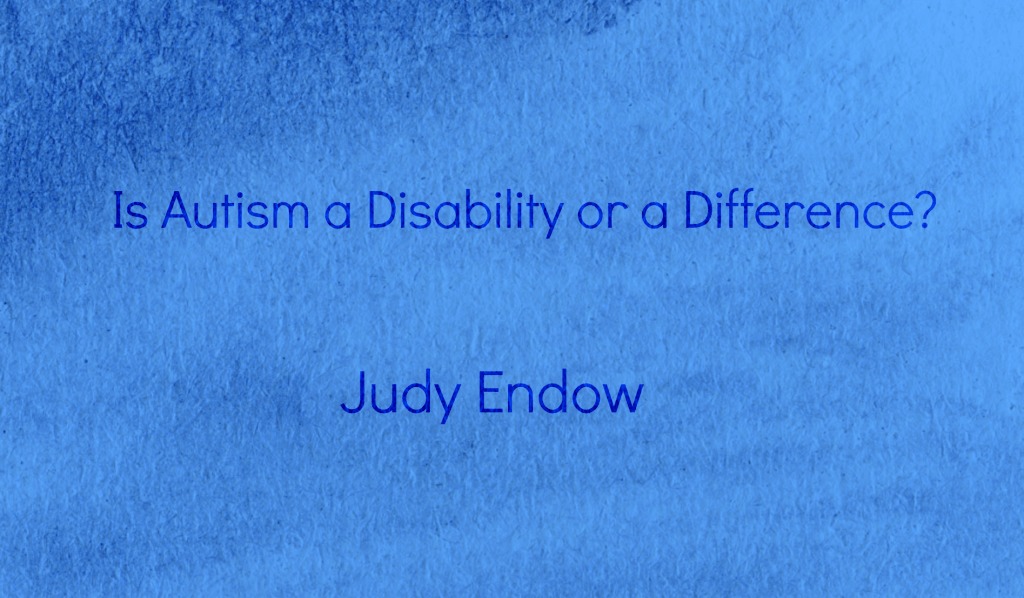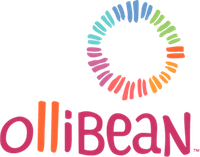
So many ideas in the larger autism community often become a debate. As an autistic this black-or-white, choose-your-side sort of thinking is very neurologically friendly to me. I like clear choices. But I also believe we are often unwittingly duped into believing we need to choose a side only because the idea is presented as a dichotomous choice.
“Is autism a disability or a difference?” is one of these questions posed as a dichotomous choice in the autism community. The way the question is posed gives the impression that there is one correct answer.
When Autism is a “Difference”
Many autistic adults would like if autism were recognized as a difference rather than a disability. Many in this group are the walking, talking autistics. We can go out in public by ourselves. Some of us are parents. We are your friends, neighbors and co-workers. We might seem to be a bit odd, but we can fit in enough to at least be allowed a place in the world at large.
Even so, being out and about in the community poses significant challenges. The sensory overload and neurological processing differences dictated by our brain along with ever present challenges with communication and conventional social understanding are such significant differences, even though we can accommodate for them, we are usually exhausted from doing so by the end of the day.
It seems to me that when we are able to be out and about in our communities unassisted by a hired person we are often expected to look and act like typical people regardless of the challenges imposed by the neurological difference of our autism. Because we appear to be like others, our difficulties and needs are thought to be our own personal problems. Even though we have an Autism Spectrum Disorder diagnosis that by definition means we have significant difficulties in many areas of life, others often look at us and ascribe negative intentionality and character flaws to us.
When Autism is a “Disability”
For some of us, the way our autism plays out in our body means we are faced with numerous obstacles to overcome every day of our lives. We may need communication devices, occupational therapy equipment and to employ personal care workers. For those of us whose autism presents challenges with these kinds of needs – we understand the disability aspect of our autism.
We often need a hired person to accompany us when we go out into the community or to support us so that we can communicate. In fact, we may require 24/7 support staff. And for some, our autism plays out in our body in such a way that people can see it as we approach! For us, people can see we need help. Rarely do others look at us and attribute our difficulties to laziness, lack of motivation, self-centeredness or any other negative character trait.
But because our autism is so visibly noticed along with the significant support we often need, people make other sorts of assumptions about us. Our needs are so obvious that people do not always consider that we also have strengths and abilities along with likes and dislikes. Often we are placed in menial jobs as adults (if we are even deemed capable of working) and our support staff is switched around as if people are interchangeable and relationships do not matter to us. We are not often seen as people who have preferences, desires, abilities, skills and talents as the time and energy of others are focused on the meeting deficits and needs imposed by our disability.
Negative Outcome of Choosing Disability OR Difference
As an autistic person when I am asked to choose one – either “disability” or “difference” – I feel like I am being asked, in essence, which part of me I would like to ignore. When I choose “disability” it means my talents, strengths, abilities and preferences are ignored. When I choose “difference” my very real difficulties and needs are not only ignored, but I am often blamed for what others consider my stubbornness in hanging on to negative “character flaws.”
Might We Incorporate Both Disability AND Difference?
What if we all chose both disability and difference? Would we then be totally ignored or totally supported? There it is again – another dichotomous choice posed as if it were a real choice!
In the meantime, please know when you ponder whether autism is a disability or difference this is a false choice sort of deal. It serves nobody well and has poor outcomes. And yet we somehow feel that we need to choose between disability or difference. Why is that?
Endow, J. (2012). Learning the Hidden Curriculum: The Odyssey of One Autistic Adult. Shawnee Mission, KS: AAPC Publishing.
Endow, J. (2009). The Power of Words: How we talk about people with autism spectrum disorder matters! Shawnee Mission, KS: AAPC Publishing.
 JUDY ENDOW, MSW
JUDY ENDOW, MSW
Judy is an autistic author and international speaker on a variety of autism related topics. Read more from Judy on Ollibean here and on her website www.judyendow.com.






[…] “Is Autism a Disability or a Difference?“, Judy Endow […]
[…] Endow, J. (2011) Is Autism a Disability of a Difference, Ollibean, Available at: https://ollibean.com/autism-disability-difference/ […]
[…] that yes, people can be legally disabled and still be LGBT. Having a disability doesn’t negate your sex […]
[…] autistic neurology means that I am not good at picking up typical social cues, understanding complex social […]
Great blog. I completely agree. It is many things. My 17 YO ASD son has intellectual disabilities, is non-verbal, and has epilepsy. He is a person who will need 24/7 care. It is both a different ability and a disability for him. It isn’t for lack of effort that he hasn’t learned to do some of the things others with autism have. It doesn’t make him less valuable. As a community it’s time to look at autism globally and to recognize how it affects all of us differently. It is both for must people. I think the autism community and not just the “NT” community sometimes promote this way of thinking. It’s time to recognize the diverse experiences we have.
My answer to the question you pose is, “Yes.” :-)
I love that you challenge the need to be one or the other. You wrote a post in a similar vein with respect to identifying with being autistic and having autism but I can’t find it. I want to refer to it in a blog post of my own. Could someone if not yourself please direct me to it? I really love it :) thanks heaps
Hi Rachel . Are you thinking of @JudyEndow ‘s post Person First Attitude Trumps Language
[…] “Is autism a disability or a difference?” is one of these questions posed as a dichotomous choice in the autism community. […]
[…] See more at: http://ollibean.com/2014/06/20/autism-disability-difference/#sthash.NMT4ZQZ4.dpuf […]
I agree that autism can lead to both strengths and challenges. It should not be considered a disability as in “less-abled” because even if we need a 24/7 support staff the fact is that we can still do more than just menial jobs. Has no one ever heard of Tito Mukhopadhyay, a famous Indian author, poet, and philosopher who had severe autism? We autistics often have different needs that we can accomodate to with our unique strengths and getting supports at some point in our lives and that should never be considered contrary to autism being a difference.
Neither. Like the gentleman said if you choose one you feel like you are denying the other. Persons with Autism and other diagnoses (and all of us) should be thought of as Uniquely-Abled.
We always seem to want to give everything a name but sometimes there isn’t one that really fits in every circumstance. Language doesn’t always offer us the ‘choice’ of a perfect descriptor and even when it might or we think we have it, there is often disagreement about among the masses. Being a professional in the field that works with parents of children with ASD, yet not on the autism spectrum myself, I always struggle with using the most appropriate and politically correct language. Thank you for enlightening me that even individuals on the spectrum struggle with this dilemma as well, but maybe for different reasons. I feel the need to choose between the terms disability and difference because I do not want to offend anyone. I anxiously await what others have to say. Thank you for this thought provoking article Judy.
This is an excellent article that poses a great question and follow up discussion that can be applied not only to the Autism Spectrum, but to the Disability Spectrum as a whole. It is not a black/white, either/or choice.
Wonderful article. It frames the issue really well and explains why it is not an either/or choice. I would love both terms to accommodate an understanding and honoring of strengths and weaknesses. I think it is the problem that in general people think of others as Normal (no problems) or Disabled (no strengths). This ignores the truth of human neuro diversity. No one is actually “normal.” That is, we are all a complex mix of strengths and weaknesses, whether they mostly for into a labeled category or not. But I think it is scary for “neuro typical” people to think of themselves as maybe quantitatively different than someone with ASD, but not qualitatively different. Put another way, no one wants to think about their many weaknesses. So, black and white thinking may be a common quality of people with ASD, but when it comes to matters that may reflect on one’s sense of self, “neuro typical” people are guilty of it too, especially if they get to be the white to someone else’s black.
Thank you for saying that “it’s both.” My 28 year old son relies on the disability language written into the Americans with Disabilities Act (ADA) to guarantee that reasonable accommodations be added to his job description; he will always need communication assistance adaptive guidelines written into his job descriptions. What he gains by having a disability/being disabled is access to a legal document that helps to level the playing field in the work place. And, that makes all the difference.
It’s a question that cannot be answered without further definition of the terms ‘disability’ and ‘difference.’
I feel that my issues are a “difference” that when not managed carefully become a “disability” and I have va 5yr old who is high functioning but unable to get a diagnosis and therefore support in the education system.
Parenting a child with autism I couldn’t agree more, I have become very skilled at using “disability” when the need dictates, but championing difference on the whole, a balance between the 2 is what we should aim to achieve, that is celebrating and building upon strengths and showing compassion, understanding and support of area’s of difficulty- this is being an advocate and ally to your child-
For me, it is clear; autism is difference that can and do, lead to difficulties i.e. SPd (sensory processing difference) and the disability that undeniable follows autism, is there because the social environment is not able to allow us the reactions that are so natural to us and so strange to other people, often other autistic people.
[…] Is Autism a Disability or a Difference? by Judy Endow […]
This makes so much sense; thanks for making it so clear.
very importnyt t ingfo an itsd imortant howe society treets us an learns tu see us fr who we are an nt tu judge us as being not good enought ur artikles very impoertnt werk